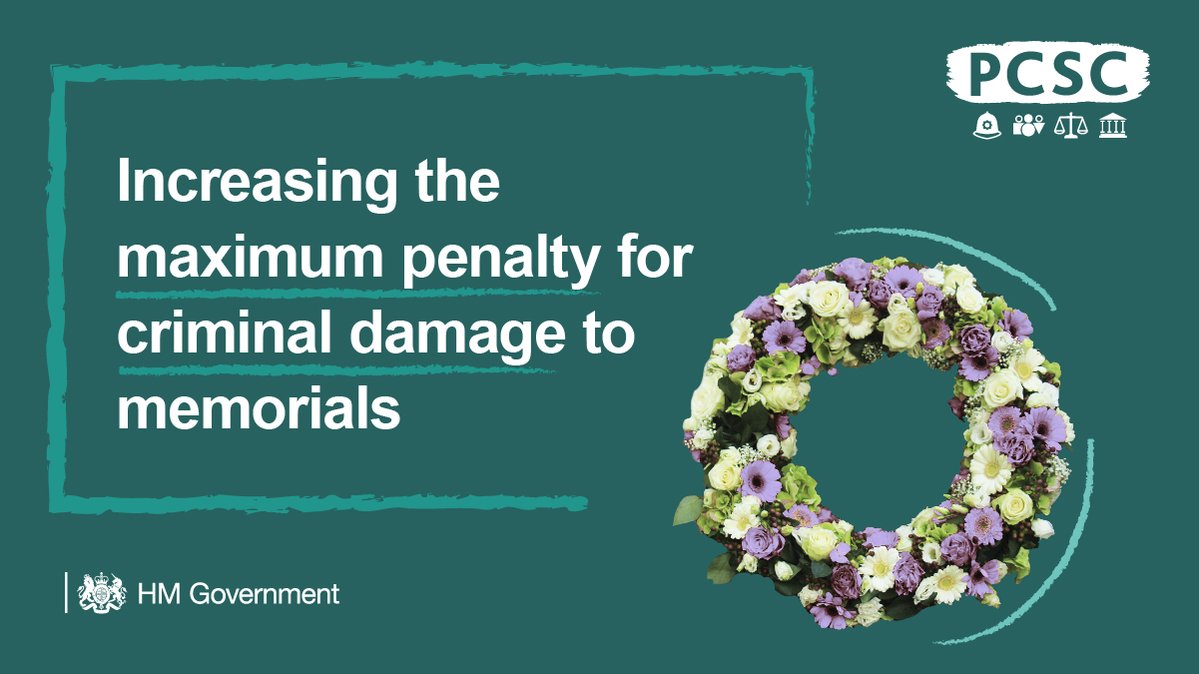
Cutting crime and building safer communities will be at the heart of new legislation unveiled in Parliament today, as the government delivers on its pledge to restore confidence in the criminal justice system.
The new Police, Crime, Sentencing and Courts Bill will give police the powers they need to protect the public, overhaul sentencing laws to keep serious sexual and violent offenders behind bars for longer and put greater emphasis on crime prevention through targeted rehabilitation.
The Bill includes robust sentencing reforms, new protections and powers for the police and reforms to the courts and offender management services.
The legislation builds on extensive work already underway to deliver a better justice system for the UK including hundreds of millions invested in courts to reduce delays, unprecedented funding for victim support services, the recruitment of 20,000 police officers and £4 billion investment in extra prison places.
Sentencing reform
- Whole life Orders for the premeditated murder of a child as well as allowing judges to hand out this maximum punishment to 18 to 20-year olds in exceptional cases to reflect the gravity of a crime. For example, acts of terrorism which lead to mass loss of life.
- Life sentences for killer drivers.
- For children who commit murder, new starting points for the minimum amount of time in custody based on age and seriousness of offence, and fewer opportunities for over 18s who commit murder as a child to have their minimum term reviewed.
- Extended ‘position of trusts’ laws to protect teenagers from abuse by making it illegal for sports coaches and religious leaders from engaging in sexual activity with 16 and 17-year-olds.
- For those who assault police or other emergency workers, new maximum penalties doubled from 12 months to 2 years.
- For those who commit criminal damage to a memorial new maximum penalties increased from 3 months to 10 years.
- The end of automatic early release for offenders who pose a danger to the public.
- The end of halfway release for offenders sentenced to 4-7 years in prison for serious violent and sexual offences such as rape, manslaughter and GBH with intent, with a requirement to spend two-thirds of their time behind bars.
- Stricter community sentences that double the amount of time offenders can be subject to curfew restrictions to 2 years and new requirements that target underlying causes of crime, such as mental health issues, alcohol or drug addiction.
- Stronger youth community sentencing options, including greater use of location monitoring and longer daily curfews, providing serious alternatives to custody.
New police powers and protections
- Serious Violence Reduction Orders – new stop and search powers against convicted knife offensive weapons offenders. This will help to steer offenders away from crime, and will ensure they are more likely to be caught and put in prison if they persist in carrying a knife or an offensive weapon.
- Strengthened police powers to tackle non-violent protests that have a significant disruptive effect on the public or on access to Parliament.
- Strengthen police powers to tackle unauthorised encampments that significant interfere with a person’s or community’s ability to make use of the land
- A legal duty on local authorities, the police, criminal justice agencies, health and fire and rescue services to tackle serious violence through sharing data and intelligence.
- Review of homicides involving offensive weapons to better understand the drivers of violent crime and prevent it from happening in the first place.
- A new law to allow police to obtain a search warrant for evidence related to the location of human remains where it is not possible to bring about a prosecution, for example where a suspect is dead, unfit to plead, or has already been convicted of the offence in the absence of a body.
- New reforms to 'pre-charge bail' to protect vulnerable victims and witnesses and prioritise victims of crime and support prompt investigations (known as 'Kay’s Law').
- The Police Covenant enshrined in law, strengthening the support received by serving and retired officers, staff and their families.
Reforms for court and offenders management
- Changes to criminal records disclosure to reduce the time period people have to declare previous non-violent, sexual or terrorist convictions to employers – covering both adult and youth offences.
- New rules to maximise the use of video and audio technology to end the need for participants to travel to court.
- The admittance of remote observers - using technology - to strengthen open justice principles across the vast majority of courts and tribunals and improve public access and transparency.
- New rules to enable profoundly deaf people to sit on juries, by allowing the presence of a ‘stranger’ being in the jury deliberation room, such as a British Sign Language Interpreter.


